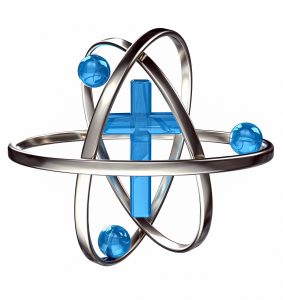
LifeDate Winter 2024 – Life Shines in Darkness
by James MacGregor, COL, USA (RET)
“Be thoroughly equipped for every good work …” (2 Timothy 3:16-17)
 Ask someone about ethics in medicine, particularly failures of ethics, and they most often talk about the studies, experiments, and practices of physicians in Nazi Germany. Learned men studied eugenics to improve the master race, employed euthanasia to free society of the infirm, and experimented on the living to test the effects of extreme environmental conditions, communicable disease, and transplants. Descriptions of this work will send a chill down your spine.
Ask someone about ethics in medicine, particularly failures of ethics, and they most often talk about the studies, experiments, and practices of physicians in Nazi Germany. Learned men studied eugenics to improve the master race, employed euthanasia to free society of the infirm, and experimented on the living to test the effects of extreme environmental conditions, communicable disease, and transplants. Descriptions of this work will send a chill down your spine.
Let us not be deceived, however, as not all monsters hide under beds or reside in faraway places.
- Less than a quarter century after the Holocaust, “well-intentioned” medical professionals, including some who had fled Nazi Germany, led an experiment in the United States that separated twins and triplets at birth.1
- Multiple US studies purport to show that women having an abortion “were no more likely to report negative emotions, mental health symptoms, or suicidal thoughts than women who were denied an abortion.”2
- And their spiritual health? Not studied, not important.
- In 2023, Congress investigated a National Institute of Health (NIH) study involving transgender youth—children as young as eight—and hormone therapy after two participants took their own lives; as many as eleven others had suicidal ideations.3
- Later in 2023, the American Neurological Association “issued new guidelines stating more explicitly than ever that clinicians may declare patients brain dead despite evidence of neuroendocrine function.” By one estimate, nearly half of all persons declared brain dead may not, in fact, be lacking all brain function.4
Why do these things happen? Even the pagan Hippocratic Oath held dear the sanctity of life—including prohibitions on euthanasia and abortion—while the first post-Nazi era medical oath included the statement, “I will maintain the utmost respect for human life from the time of conception ….” No doubt, most of us have heard that doctors should “first, do no harm.”
The answer to “why” then is, of course, sin, but in this case, it is also the false sense of security given by man-authored codes and oaths.
We know there is only one source of truth, morality, and ethics. We can do no wrong in debates about cloning, fetal stem cell use, end-of-life decisions, and so much more, if we, and our healthcare providers, would turn to, and trust, Scripture. In a letter to Timothy, Paul tells us:
“All Scripture is God-breathed and is useful for teaching, rebuking, correcting and training in righteousness, so that the servant of God may be thoroughly equipped for every good work” (2 Timothy 3:16-17).
Praise be to God “giving us everything we need to live a life devoted to Him.”5 The Journal of Medical Ethics, while not agreeing with all Christian viewpoints, recognizes that “Christians have been the most consistent advocates [on the intrinsic value of life], defenders of the vulnerable, and good medical ethics continues to benefit from that voice.”6 There is a place in these discussions for the Christian perspective. Is your voice being heard?
- Three Identical Strangers, directed by Tim Wardle (2018, New York City, New York: None Rated), Amazon Prime, August 2024
- “The Facts About Abortion and Mental Health,” American Psychology Association, updated 21 April 2023, accessed 08 September 2024
- Letter, 09 May 2023, from multiple members of Congress to Lawrence Tabak, Director, National Institute of Health
- Integrity in the Determination of Brain Death: Recent Challenges and Next Steps, National Catholic Bioethics Center, 11 April 2024
- Minor rewording of 2 Peter 1:3-5, specifically verse 3.
- “Doing Good Medical Ethics: A Christian Perspective,” John Saunders, https://jme.bmj.com/content/41/1/117, accessed 09 September 2024
James MacGregor is a Director at Large for LFL of Kansas.